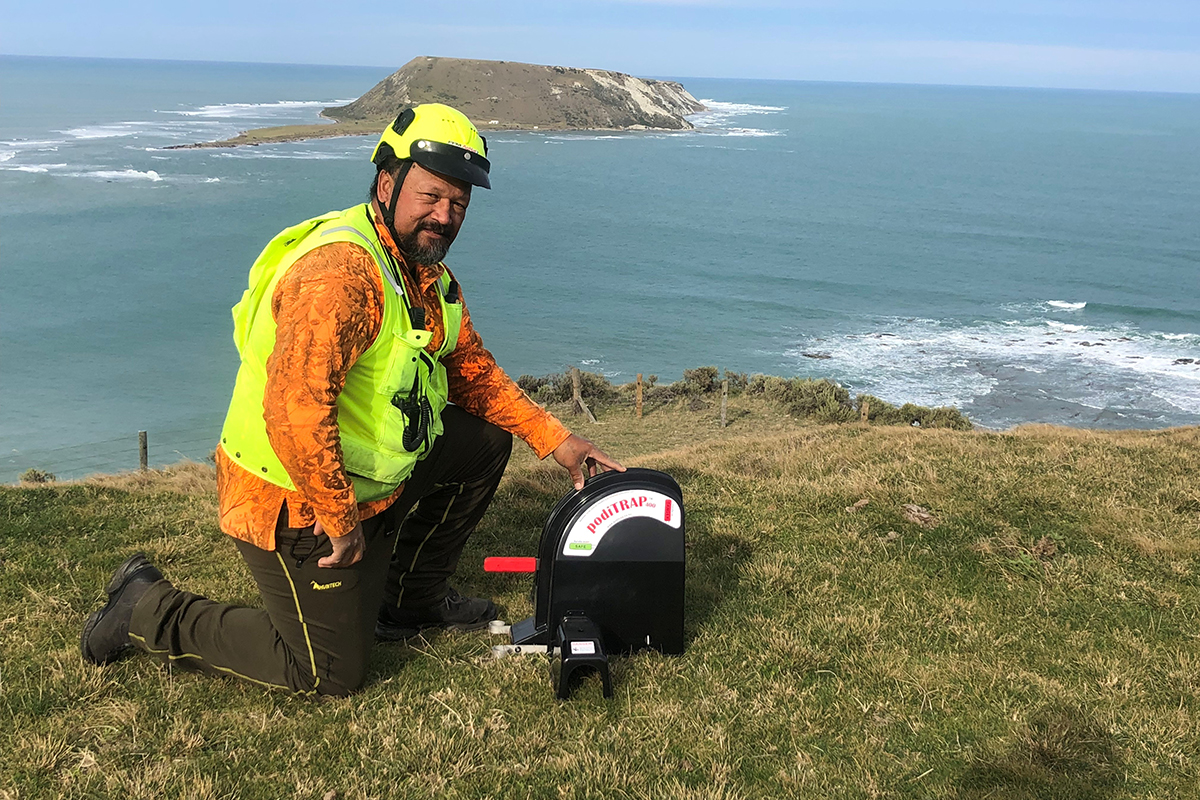Māhia Peninsula is on the verge of becoming possum free.
In April sniffer dogs will be released onto 9,000 hectares to hunt down any remaining possums as Whakatipu Māhia, a biodiversity restoration being led by Predator Free Hawke’s Bay (PFHB) nudges close to its goal of making the entire peninsula free of possums.
Hawke’s Bay Regional Council (HBRC) Biodiversity Officer Natalie de Burgh says Whakatipu Māhia is the most advanced and largest possum eradication in New Zealand spanning 14,600 hectares of farmland.
“Using a combination of an intensive bait station network, targeted live capture trapping, and intensive monitoring using motion sensitive cameras, dog surveys and thermal imaging, the team are working hard to achieve completed eradication across the entire peninsula by 30 June 2022.”
The Whakatipu Māhia project started in July 2018 and is part of a regional PFHB initiative to build capability and capacity for iwi and community to lead the project.
The PFHB team have been driving innovative conservation and restoration in proximity to farmland and aim to reduce the costs of farmland predator control by at least 50 percent, enabling redeployment of resources and ultimately a shift in focus from suppression to eradication across rural landscapes. It builds on the success of the Poutiri Ao ō Tāne and Cape to City ecological restoration projects.
At Mahia the focus has been on possum eradication, controlling mustelids – weasels, stoats and ferrets – and feral cats, and research.
One of the tools that has been particularly successful has been sniffer dogs.

HBRC Manager Catchment Services Campbell Leckie explains how first his team got possum numbers very, very low in certain areas with a monitored network of bait stations, motion sensitive cameras and wireless monitored traps.
“We then brought in the ‘scat dogs’ to find any possum poo left in the area and lead us to any remaining possums.”
The dogs had been through more than two years of training in Taranaki to become certified by the Department of Conservation and spent three weeks on Whakatipu Māhia successfully covering over 5,000 hectares.
“They are a really important tool in the predator-free fight, especially at the end of a project where you’re trying to confirm that there are no possums left, ” says Leckie.
He says this latest tool demonstrates how innovation is critical to the success of predator free. “Business as usual will not get us collectively to the predator free goal.”
The dogs will be back in April to cover the remaining 9,000 hectares on the Peninsula and finish off the “hunt down” phase. After this, there will be layers of predator devices such as a maintenance network of podiTRAPs, cameras, and bait stations, put in place to prevent possums getting from Hawke’s Bay past the neck of land onto Māhia Peninsula.
“Reaching the milestone of making the peninsula possum free will be a significant achievement and a sign of what we can do when we work together with other agencies and the community to support native species to thrive,” says de Burgh.
Watch out for a future BayBuzz story as we talk to local iwi and community in Māhia about Whakatipu Māhia and their plans for the future on the peninsula.
Photo by Kaya Cooper


Good work folks <3
A great effort by all involved
What a wonderful achievement, after another year or so you will notice the resurgence of birds Tuis etc. It was an outstanding feature here in Napier once the City Hills were cleared of the predators .
Absolutely amazing I love reading this!!!